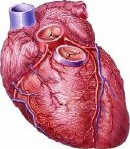No impact on rate of change of intima-media thickness, coronary artery calcium score
TUESDAY, Aug. 11, 2015 (HealthDay News) — For older men with low or low-normal testosterone levels, testosterone administration for three years is not associated with atherosclerosis progression, according to a study published in the Aug. 11 issue of the Journal of the American Medical Association.
Shehzad Basaria, M.B.B.S., from Harvard Medical School in Boston, and colleagues examined the effect of testosterone administration on subclinical atherosclerosis progression in older men. Three hundred eight men aged 60 years or older with low or low-normal testosterone levels were recruited from three centers and randomized to 7.5 g of 1 percent testosterone (156 men) or placebo gel packets (152 men) daily for three years.
The researchers observed no significant between-group difference in the rate of change in intima-media thickness (0.010 mm/year in the placebo group versus 0.012 mm/year in the testosterone group; P = 0.89) or in the rate of change in the coronary artery calcium score (41.4 versus 31.4 Agatston units/year; P = 0.54). Among individuals assigned to receive testosterone, changes in intima-media thickness or calcium scores were not associated with change in testosterone levels. There was no significant between-group difference in sexual desire, erectile dysfunction, overall sexual function scores, partner intimacy, or health-related quality of life.
“Because this trial was only powered to evaluate atherosclerosis progression, these findings should not be interpreted as establishing cardiovascular safety of testosterone use in older men,” the authors write.
The study was supported by Solvay Pharmaceuticals/Abbvie Pharmaceuticals, which provided the testosterone and placebo gel.
Copyright © 2015 HealthDay. All rights reserved.








